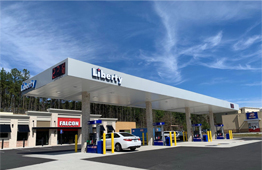You get what you pay for, right? Well, we at least hope we do. So what do you get when you pay 10% more per gallon for 89 than 87 gasoline, or another 10% on top of that to put some 93 octane in your tank?
Short answer for most drivers: Not much.
what is octane?
Let’s do a quick intro (or maybe this is a review for you) to gasoline and engines. Gasoline isn’t a single substance, chemically speaking. It’s a blend of different hydrocarbons that are distilled from crude oil. Octane is one of those hydrocarbons, and the octane rating refers to the amount of octane in that gasoline.
Why do we care about this one hydrocarbon over all the others? Gasoline-powered internal combustion engines are spark-ignition engines. They inject gasoline into chambers where a spark from the spark plugs combusts the gasoline – a mini, controlled explosion - causing the pistons to move up and down, turning the crankshaft, a whole bunch of mechanical engineering happens and your car goes down the road. However, gasoline doesn’t need a spark to combust. Rapid increases in pressure - like the ones that occur with every stroke of a piston in an internal combustion engine - can also do it, but we want to avoid that.
what does higher octane do?
If the engine timing is off, the pressure can cause gasoline to combust prematurely. This results in an engine knock, which is just what it sounds like: a knocking sound coming from your engine, as the normal rhythm of piston movement is disrupted by this mistimed, off-cycle mini-explosion.
As a component of gasoline, octane concentration influences the temperature at which gasoline combusts. The more octane in the gasoline, the higher the ignition point. Because temperature and pressure are two sides of the same coin (well, Charles’s Law) when it comes to such things, higher octane means less probability of engine knocking.
That sounds like a good thing. Persistent engine knocking can lead to engine damage, so if we can mitigate that risk by paying an extra 20 cents a gallon, we probably should, right?
so who needs octane anyway?
Not really. Most cars these days have advanced monitoring and control systems to regulate engine timing and prevent knocking. The risk of engine knocking is already so low that there is little to be gained by reducing the risk via higher octane gasoline. Nor does higher octane gas increase fuel efficiency or power output.
Cars with high performance engines that have more precise engine timing requirements are the only ones that need higher octane fuels. They have less margin for error in terms of their engine timing, so the octane rating helps cover that spread. People who buy and drive these cars usually know what they are getting into, and they’ll be aware that they need 89 or 93 octane gasoline. It’s right there in manual, on that little label in the door frame with the tire pressure, and their dealer or mechanic is remiss if they don’t emphasize the car’s specific fuel needs.
But even in high performance engines, the occasional tank of 87 is not going to cause engine knocking or engine damage. Lower octane gas will reduce the car’s top end performance, but will have little to no long term effects.
You can say it sets the ceiling, not raise the roof.
Think about all this the next time you hear an advertisement for “high octane entertainment,” or someone describes your favorite team as having a “high octane offense.” All that really means is that the movie, event or offense has an extra layer of mitigation against an already low probability, low impact outcome. Wow, that’s deflating.
And think about it the next time you pull up to the pump and consider giving your car a treat with 12 gallons of the “good stuff.” If your car’s rated for 87 octane gas, you’ll get better performance by going inside and spending those extra dollars on a cup of coffee for yourself.





